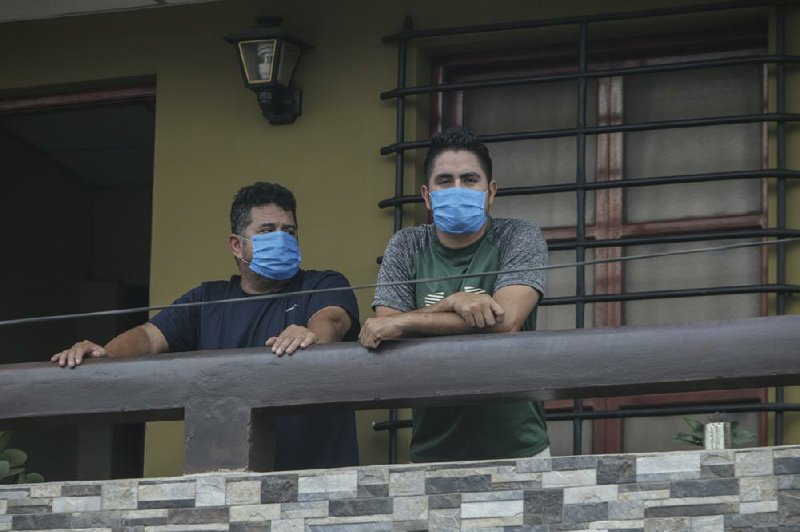MANAGUA, Nicaragua -- As the new coronavirus spread and economies shut across Latin America, Nicaragua stayed open -- schools, stores, concert halls and baseball stadiums, all operating uninterrupted on orders of a government that denied the gravity of the disease.
On a road trip last month, the San Fernando Beasts of the Nicaraguan Professional Baseball League played a full schedule with fans in the stands and no personal protective equipment.
Then, during a May 16 game in the capital, Managua, Manager Norman Cardoze Sr. and coach Carlos Aranda felt sick. Cardoze's son Norman Jr., the team's star slugger, was so weak and achy he didn't play. Within two days all three men were hospitalized. The Cardoze father and son, who tested positive for the virus, spent a week in the hospital. Aranda, 58, arrived there unconscious, was not tested and died. Eight other players quarantined at home.
For a country that has refused to acknowledge the severity of the coronavirus, the death of a well-known sports figure and infection of two others was a powerful wake-up call.
Nicaragua's Sandinista government has been trying to ignore and even actively obscure the impact of the coronavirus on baseball by threatening bans from the sport for those who refused to play. But so many players refused to take the field after Aranda died May 21 that the league was forced to suspend the playoffs that same day, first until June 5 and then until June 26. The national league has said only that it suspended the playoffs "at teams' request."
Nicaragua's government has reported more than 1,100 confirmed infections and 46 covid-19 deaths, numbers that it now shares only weekly. But Nicaraguan activists, opposition figures and international health officials have been pressuring President Daniel Ortega to acknowledge the true toll of the disease, obscured by a lack of testing and "express burials" of people suspected to have had covid-19. Ortega's critics have also demanded tougher measures against the disease in line with those of other countries in the region.
On Friday, U.S. Ambassador Kevin Sullivan said via Twitter that the virus is spreading in Nicaragua, affecting everyone, including U.S. citizens and diplomats. He urged people to self-quarantine and go out as little as possible.
While the government is unyielding, the cancellation of baseball in Nicaragua is adding to the pressure, offering the country's 6.4 million people a daily reminder that the disease is present.
"I didn't think the situation was that serious, and I was always going to the stadium," said Eliecer Lopez, a 27-year-old construction worker from Masaya, the Beasts' hometown. "Now I think the suspension [of the season] was the best thing they could have done."
"It's not easy to see people suffocating and die right there," said Cardoze Sr., a 48-year-old Hall of Fame manager. "In just my room like 10 died. And from there, we listened to the hammering ... whack, whack, whack ... the coffins they were nailing shut in the other room."
At the Cardoze home, Fatima Ruiz monitors her husband's and son's recovery. She was infected too, but her son, 29, continues to be the weakest. She cooks them iguana soup to strengthen their immune systems and fumes that the season was allowed to continue.
Aranda's death "could have been avoided if they had suspended the games in time," she said. "No one from the team was careful, they didn't use masks, they didn't pay attention to it. I think they were all too trusting because they saw that games kept being played as if there was nothing."
Photos from the final game in Bonanza show fans in the stands and no one wearing masks. At the May 17 doubleheader that the Cardozes and Aranda missed, several players wore masks. Earlier in the epidemic, players who had said they wanted to wear masks or stop playing were threatened with bans from the game. Attendance dwindled in Managua, but in more far-flung parts of the country fans still thronged to the stadiums.
Coach Aranda's father, Carlos Aranda Salazar, 77, said his son had been told to keep coaching.
"His sister told me she had advised him to stop going to games, but he answered that he had to go, because they had warned him that if he didn't show up he'd lose his salary and he'd be banned from baseball for two years," said the elder Aranda.
Sports on 06/06/2020
